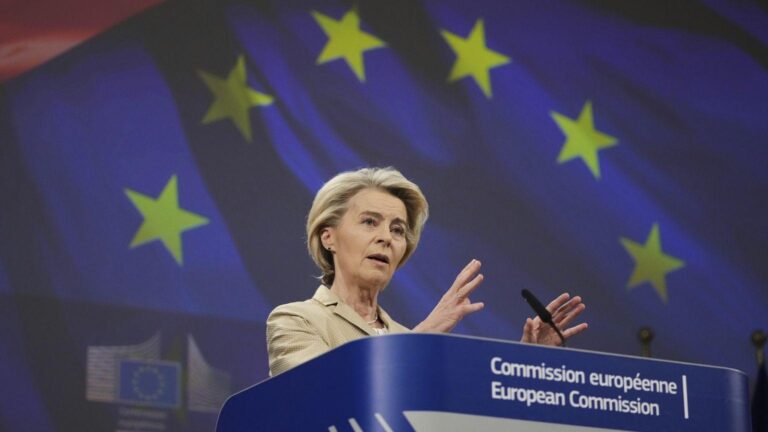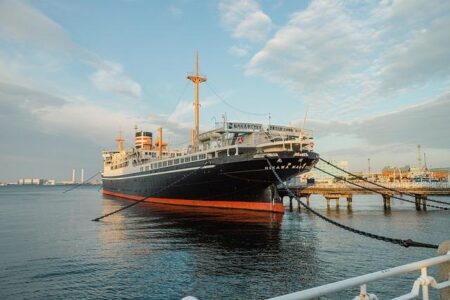The European Union has announced a new round of sanctions aimed at curbing Russia’s energy sector, escalating pressure amid ongoing geopolitical tensions. The latest measures, unveiled Tuesday, target key components of Russia’s energy infrastructure and seek to limit the country’s ability to generate revenue from its natural resources. This development marks a significant step in the EU’s strategy to respond to Moscow’s actions in Ukraine and assert economic influence.
E.U. Intensifies Pressure on Russian Energy Sector with Latest Sanctions
The European Union has escalated its economic measures against Russia by imposing stringent sanctions targeting key players within the country’s energy industry. The newly announced restrictions specifically aim to limit Russia’s export capabilities in oil, natural gas, and coal, effectively cutting off significant revenue streams that fund Moscow’s ongoing geopolitical operations. This move represents the most aggressive phase of the EU’s strategy to weaken Russia’s financial stronghold amid continued conflict tensions.
Key elements of the sanctions include:
- Prohibition on importing Russian crude oil and petroleum products via maritime routes.
- Ban on the purchase and transfer of energy-related equipment to Russian energy firms.
- Targeted asset freezes against top executives within the Russian energy sector.
| Sector | Sanction Type | Impact Timeline |
|---|---|---|
| Oil Exports | Import Ban | 6 Months |
| Gas Equipment | Export Restrictions | Immediately |
| Key Personnel | Asset Freeze | Ongoing |
Impact on European Energy Markets and Supply Chain Vulnerabilities
Europe’s energy landscape faces growing pressures as the latest EU sanctions deepen disruptions in natural gas and oil supplies from Russia. The bloc, heavily dependent on Russian hydrocarbons, now confronts heightened volatility in energy prices and the urgent need for alternative sources. This shift is amplifying existing supply chain vulnerabilities, particularly for countries in Eastern and Central Europe where Russian energy imports constitute a large share of the market. As a result, utilities and industries are scrambling to secure reliable contracts, while governments accelerate initiatives to diversify energy portfolios.
Key challenges unfolding in the wake of the sanctions include:
- Increased reliance on liquefied natural gas (LNG) imports from the U.S. and Middle East, straining global shipping and infrastructure capacities.
- Supply chain bottlenecks caused by logistical constraints and competition for scarce resources such as specialized materials for renewable technologies.
- Rising operational costs that threaten the competitiveness of European manufacturing sectors dependent on stable energy prices.
| Impact Area | Details |
|---|---|
| Gas Supply | 40% reduction in Russian pipeline deliveries |
| Energy Prices | Surge of 25% in wholesale electricity rates |
| Renewable Development | Acceleration of €120B funding for wind & solar |
Strategies for European Nations to Mitigate Energy Disruptions Amid Rising Tensions
In response to escalating geopolitical strains, European countries are intensifying efforts to diversify their energy sources and reduce dependency on Russian supplies. This strategic pivot focuses on accelerated investments in renewable energy projects, including wind, solar, and hydrogen technologies. Governments are also collaborating to enhance energy interconnectivity via cross-border grids, enabling more resilient distribution and sharing of resources during supply shocks. Additionally, short-term strategies such as expanding LNG import infrastructure and securing alternative pipeline agreements are being prioritized to maintain stability in the energy market.
To further fortify their energy frameworks, policymakers are enacting a series of targeted measures aimed at demand moderation and efficiency improvements. These initiatives range from incentivizing industrial energy efficiency upgrades to promoting consumer-level conservation efforts. The table below outlines key tactics currently under consideration or implementation across major European nations, highlighting their respective timelines and expected impact on energy resilience:
| Country | Key Strategy | Implementation Timeline | Expected Impact |
|---|---|---|---|
| Germany | Accelerated wind & solar capacity | 2024-2028 | Reduce gas imports by 30% |
| France | Expand nuclear refurbishment | 2025-2030 | Enhance grid stability |
| Italy | LNG terminal expansions | 2023-2025 | Diversify suppliers |
| Poland | Energy efficiency grants | 2023-2026 | Lower demand peak |
Concluding Remarks
As the European Union intensifies its economic pressure on Russia with this latest wave of energy sanctions, the move underscores the bloc’s commitment to curtail Moscow’s financial resources amid ongoing geopolitical tensions. The evolving situation remains closely monitored by international stakeholders, as both sides brace for the potential economic and diplomatic repercussions in the months ahead.




